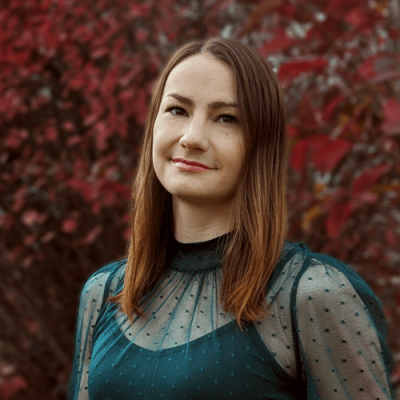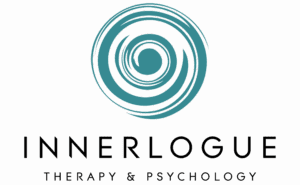PTSD & Trauma Therapy in Calgary: Heal, Rebuild & Thrive
Trauma-informed support and evidence‑based treatments, EMDR, trauma‑focused CBT, somatic and mindfulness therapies, to help you process traumatic experiences and reclaim your life.
Are painful memories or flashbacks making everyday life feel impossible?
Post‑traumatic stress can develop after accidents, assaults, sudden losses, difficult childbirth or chronic abuse. It isn’t a sign of weakness, it’s a legitimate mental health condition. Symptoms like flashbacks, avoidance, hypervigilance and cognitive shifts can interfere with your ability to function. At Innerlogue, you’ll find compassionate support through therapies such as EMDR, trauma‑focused CBT and somatic therapy so you can process your experiences, rebuild your life and thrive.
Our approach. Your progress.
Safe & Confidential Space
Sessions offer a welcoming environment where you can share at your own pace.
Individualized Treatment Plans
Therapists use trauma‑focused CBT, prolonged exposure, EMDR, somatic therapy and mindfulness depending on your needs.
Trauma-Informed Clinicians
Our team is trained to recognize the impact of trauma and provides compassionate, non‑judgmental support.
Meet Our Therapists
Healing from trauma takes time, care, and the right support. Our therapists create a safe, respectful space to work through PTSD, complex trauma, and difficult life experiences. We use evidence-based approaches to help you feel more grounded, connected, and in control of your life, at your own pace.

Nancy McLean
Believes everyone is worthy and whole, offering gentle counselling that explores how biology and experiences shape us, guiding healing and self‑acceptance with warmth and curiosity.

Natalie Siu-Mitton
Registered psychologist & dietitian helps adults with disordered eating, body image and trauma using strengths‑based, trauma‑informed, neurodiversity‑ and size‑inclusive approaches.

Lizzie Smith
Draws on military experience to support adults, children and couples, especially veterans and first responders, using CBT, DBT, EMDR and Gottman methods in a welcoming, 2SLGBTQIA+ affirming space.
What Is PTSD & Complex Trauma?

PTSD develops after exposure to traumatic events. Causes include assaults, serious accidents, natural disasters, sudden loss, childhood abuse and medical trauma. It is important to note that it is not only the nature of the event that matters, but also the individual’s subjective experience, their perception of danger, and the lack of resources or support at the time the trauma occurs.
Common PTSD Symptoms
- Re-experiencing (flashbacks, nightmares): Intrusive memories, vivid flashbacks, and nightmares that feel like the trauma is happening all over again. These episodes can be unpredictable and overwhelming.
- Avoidance: Steering clear of places, people, or thoughts linked to the trauma. This may offer short-term relief but can prevent healing over time.
- Hypervigilance and reactivity: Feeling constantly on edge, easily startled, or quick to anger. This heightened alertness can cause sleep issues, difficulty focusing, and emotional exhaustion.
- Cognitive and emotional changes: Shifts in how you see yourself and the world, feeling numb, detached, hopeless, or burdened by guilt or shame. These changes can surface long after the trauma.
What to Expect During Therapy
Counselling sessions provide a safe, confidential space where you set the pace. Your therapist will gently assess your symptoms and goals and share tools to manage anxiety and calm your body. Therapy builds a trusting relationship and offers ongoing support.
Therapeutic Approaches
- Trauma‑Focused CBT: Identify and change negative thoughts while gradually confronting painful memories.
- Prolonged Exposure Therapy: Gradually exposes you to trauma cues in a safe environment.
- EMDR: Uses bilateral stimulation to reprocess memories and reduce distress.
- Somatic Therapy: Releases tension stored in the body.
- Mindfulness: Helps you observe thoughts and feelings without being overwhelmed.

You Are Not Alone

Many people live with PTSD and find a path to healing. At Innerlogue, we offer free evaluations and take time to walk you through your options.
Starting therapy can feel like a big step, but here’s what it looks like:
- A safe space: You’ll be met with warmth, not pressure. You don’t have to share everything right away.
- A gentle start: Your therapist will ask about your symptoms and goals to understand how to support you.
- Practical tools: You’ll learn simple ways to manage triggers, anxiety and body responses.
- Your own pace: You set the pace. Nothing is rushed or pushed.
- Steady support: You’ll build a relationship with someone who’s with you every step of the way.
Take the courageous first step toward healing.
Book your free consultation and let our trauma‑informed therapists support your journey.
Frequently Asked Questions
Assaults, accidents, disasters, sudden loss, childhood abuse and medical trauma.
Flashbacks, nightmares, avoidance, hypervigilance and cognitive/emotional changes.
Trauma‑focused CBT, prolonged exposure, EMDR, somatic therapy and mindfulness.
Related Topics

Supporting Neurodivergent Youth Through the Holidays: 9 Parent-Friendly Strategies
The holidays can bring joy, excitement, and connection, but they can also bring noise, change, and stress. For many neurodivergent youth, including autistic, ADHD, gifted,

The Parent Pep Talk: You’re Doing Better Than You Think
Parents often ask themselves whether they did enough, often late at night when the house is finally quiet. Maybe you ordered take-out because you were

Free Parenting Resources in Calgary: Support for Parents of Toddlers and Newcomers
In the world of Parenting, everyday brings new challenges and opportunities. It’s a lifetime journey with different stages, and everyone experiences it differently. Parenting can






